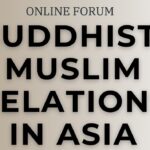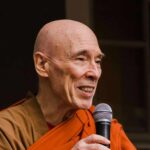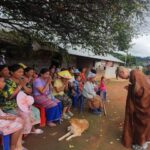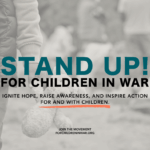The era of modern, industrial capitalism & communism based in the dualism of mind and body has increased our fundamental human anxiety to new levels. This latest post-industrial era of mass media is intensifying this condition and reaching a tipping point in the worldwide epidemic of mental illness. As a response, incredible innovations are occurring not only in biomedical solutions but more importantly in new forms of psychotherapy. Buddhism finds itself in the center of this movement as western based therapeutic systems seek to import its concepts and practices, specifically mindfulness meditation. At the same time, practicing Buddhists worldwide are themselves experimenting with adapting traditional teachings and practices to new contexts. As innovations continue to grow and new techniques emerge everyday, one can feel as overwhelmed by the methods for healing as by the causes of suffering. In our work for suicide prevention in Japan and through our increasing connections worldwide with the Buddhist based end-of-life care, psychotherapy, and chaplaincy movements, we have been deeply impressed and moved by what we also find to be the fundamental simplicity of healing: connection, or as the Japanese would say en 縁, “karmic connection”. All the techniques and training courses and years of study are essentially trying to lead us to the simple yet fundamental healing qualities of connection, kindness, warmth, and community—something that your neighborhood grandmother perhaps knows better than your famous Buddhist master.
With these emerging lessons in our mind-hearts, a group of 20-30 monks, nuns, serious lay practitioners, and specialists in a variety of fields gathered for an International Roundtable on Buddhist Psychology, Psycho-Spiritual Counseling, and Chaplaincy Training from March 12-15 at the headquarters office of the International Network of Engaged Buddhists (INEB) in Bangkok, Thailand. This meeting was the first major follow-up to the 1st International Conference on Buddhism, Suicide Prevention, and Psycho-Spiritual Counseling held in Yokohama & Kyoto, Japan from November 6-10, 2017. That conference was the culmination of over a decade of activities by the International Buddhist Exchange Center (IBEC) of the Kodo Kyodan denomination in Yokohama to nurture a collaborative network of priests in Japan working on suicide prevention. That conference also included co-sponsors the Jodo Shin Hongan-ji Denomination Research Institute, the Ryukoku University Research Center for Buddhist Cultures in Asia (BARC), the Association of Buddhist Priests Confronting Self-death and Suicide of Greater Tokyo, and the Soto Zen Denomination Research Center.
In an effort to deepen understandings of key issues and develop further collaborative initiatives, the core group of participants from the first conference along with a select number of new participants met in Bangkok for four days of more intimate and focused discussion on the following themes: 1) the interface between Buddhist thought and modern psychology; 2) modalities for training Buddhist chaplains in psycho-spiritual care; 3) cooperative strategies & team building for medical and spiritual caregivers; and a new theme 4) confronting substance abuse through Buddhist methods. Participants came from Japan, Thailand, the United States, Myanmar, and India.
Workshop for Monastics on the Meaning and Practice of Death
Before the main meeting began on the 13th, a special meeting & workshop for monastics on the meaning and practice of death was held as single-day event on the 12th. Initially, this meeting was planned as an exchange between Japanese priests working on suicide prevention and Thai monks working in end-of-life care. However, it grew to include Tibetan and Myanmar monastics, who enriched the discussions with their own viewpoints and experiences.
Although only one brief day together, the entire group was inspired to learn of the wide variety of innovative activities toward dealing with death in contemporary society by traditional Buddhist monastics. While further follow up will be conducted, the group’s imagination was stimulated to think of a longer and wider ranging such program among Buddhist monastics of all traditions.
Conclusion: From Thought to Word to Deed
Taking a cue from Pra Suparo’s explanation of vow (sacca) and its manifestation in thought, word, and deed, we were able to reflect on the group’s development since the first conference in November 2017. That conference was very much focused on “thought” with a large number of presentations and exchange of information. This conference attempted to shift to a more conversational style of “word” to delve more deeply into the many issues that arose from the first conference. As we sat to discuss the merits of moving forward together, a consensus arose for more active forms of interaction in the style of “deed”. A number of sub-themes have emerged as essential for not only deeper exploration but also for sharing and training in methods which the group will move forward in developing, perhaps as smaller sub-conferences:
- Mindfulness: how to use mindfulness and meditation in authentically Buddhist ways to support those in suffering and their caregivers
- Ritual: how to use Buddhist rituals, especially those around death such as preparation for death and dealing with grief
- Compassion & other “emotional” tools: going beyond the emphasis on mindfulness and meditation, how to use the variety of “emotionally intelligent” Buddhist teachings and practices in therapeutic settings, such as the paramitas, the brahmaviharas, etc.
- Monastics workshop on death and ritual
- Religious trauma: clarifying and redefining traditional Buddhist teachings that stigmatize mental illness and marginalized identity.
Reported by Jonathan S. Watts. For more information on this conference and our continuing work, visit our webpage at: http://jneb.jp/english/activities/dyingcar

Conference Group Photo March 2019

Day 2 Roundtable discussion










